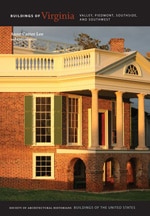Farmville was established in 1798 on land acquired from the Randolphs of Cumberland County and laid out in an irregular grid pattern. When Ulysses S. Grant pursued Robert E. Lee through the town on their bloody road to Appomattox in 1865, the town's Main Street had a three-story Italianate hotel and two-story residences and stores. In the subsequent half century, Farmville was made the county seat and more dramatically fulfilled the prophecy of its name by becoming a thriving regional dark tobacco market. In spite of a decline in tobacco sales and the post-World War II shift of warehouse auctions to larger centers, Farmville has managed to remain a regional commercial center.
Today home furnishings retailers are reusing the old tobacco storage buildings for picturesque showrooms that attract customers from all over Virginia. These warehouses near the Appomattox River mark the beginning of the Farmville commercial district that extends for several blocks before drifting into a series of fragmented residential neighborhoods and strip development south of town. Along with government and commerce, education has played a strong role in the town's history. Longwood University (PE7) is an important component of Farmville, and its faculty and staff are a major part of the town's population. Not only have the members of Longwood and the nearby Hampden-Sydney College (PE17) communities given Farmville an unexpectedly lively cultural scene, they have also often been conscientious caretakers of the town's nineteenth- and early-twentieth-century neighborhoods along and adjoining High Street.
Writing Credits
If SAH Archipedia has been useful to you, please consider supporting it.
SAH Archipedia tells the story of the United States through its buildings, landscapes, and cities. This freely available resource empowers the public with authoritative knowledge that deepens their understanding and appreciation of the built environment. But the Society of Architectural Historians, which created SAH Archipedia with University of Virginia Press, needs your support to maintain the high-caliber research, writing, photography, cartography, editing, design, and programming that make SAH Archipedia a trusted online resource available to all who value the history of place, heritage tourism, and learning.

